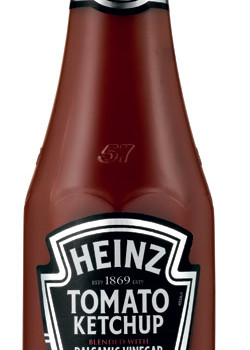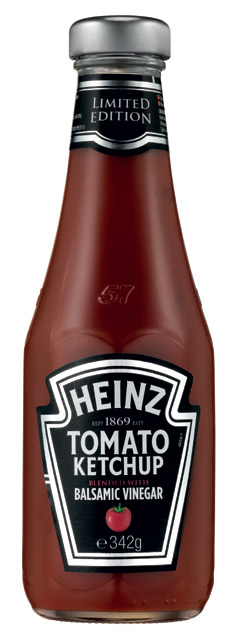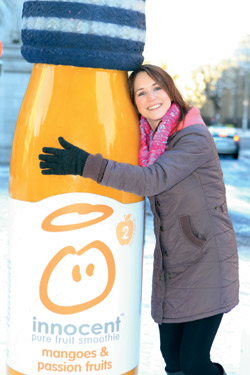A friend indeed?

How can you ensure social networks become a ‘friend’ to your business interests and not a potentially fatal foe? Gillian Hamill reports.
19 April 2011
 While many across Ireland have fallen under their seemingly hynoptic sway, unfortunately online social networks such as Facebook and Twitter are not always a useful ‘friend’ for businesses. Especially, when a conversation that site members believe is an uncensored discussion between peers rapidly becomes public knowledge. Even experienced broadcasters such as RTE Primetime’s Miriam O’Callaghan have fallen prey to such misjudgement – last year she inadvertently confirmed rumours of her colleague Gerry Ryan’s death were true, before his employers or family had issued an official confirmation.
While many across Ireland have fallen under their seemingly hynoptic sway, unfortunately online social networks such as Facebook and Twitter are not always a useful ‘friend’ for businesses. Especially, when a conversation that site members believe is an uncensored discussion between peers rapidly becomes public knowledge. Even experienced broadcasters such as RTE Primetime’s Miriam O’Callaghan have fallen prey to such misjudgement – last year she inadvertently confirmed rumours of her colleague Gerry Ryan’s death were true, before his employers or family had issued an official confirmation.
Indeed, even former Taoiseach Brian Cowen suffered the ‘wildfire effect’ of these sites when following an interview on Morning Ireland that couldn’t quite be classified as his finest hour, Fine Gael’s Simon Coveney ‘tweeted’ on the already popular conversational gambit that the Taoiseach “sounded halfway between drunk and hungover.”
So it’s hardly surprising then that employees can also be lured through a false sense of intimacy, into revealing information that is either damaging to a retailer’s reputation or offensive to colleagues.
Damaging revelations
Yet according to Síobhra Rush of corporate law firm, Matheson Ormbsy Prentice, it becomes significantly more difficult to discipline a staff member who makes inappropriate comments online, if a clear, unambiguous policy on the usage of these sites has not already been fully communicated to all staff.
“I would certainly recommend that employers seek legal advice before embarking on disciplinary action in those circumstances,” says Rush. “Where they can’t point to a specific policy that has been breached, they would have to show that there was damage caused to their reputation or significant damage to the employment relationship.”
Irish fashion retailer A-Wear found this lesson out the hard way to its chagrin in 2008. A sales assistant who was fired after she posted an expletive-laden message about her boss on a Bebo social networking website, was awarded €4,750 in compensation by an Employment Appeals Tribunal. The tribunal ruled that the dismissal was disproportionate to her error.
Policy parameters
What then, should a social networks policy include to give retailers peace of mind? According to Rush: “Generally it would include a policy statement, saying that there are lots of social networking sites and that while these are a useful networking tool, the company might not permit access to them during working hours or business hours.
“You would also state that an employee would not make reference to colleagues in connection with work or work related activities, or the company name on any of the sites. You would make sure that there’s no inappropriate social information regarding the workplace being circulated. This would involve listing that employees don’t use their work email address, don’t make any negative or defamatory remarks about the company, and don’t display any [unauthorised] images of the company or of colleagues.”
Marks & Spencer currently operates a similar policy with regard to its social networking activity. A spokesperson told ShelfLife: “M&S is a multi-channel retailer and as part of this we operate active Facebook and Twitter sites for Ireland, with over 25,000 fans and followers. The business has a comprehensive set of social media good practice guidelines, which is shared with employees via store notice boards and the company intranet. Any employee who interacts directly with customers on M&S social media pages is trained according to our community manager guidelines for content moderation.
“As part of our good practice guidelines, employees are reminded of the possible impacts of their social media activity. Any allegation of inappropriate material being posted on social media would be investigated in line with our existing disciplinary policies.”
An individual’s own views
Similarly, it can also prove important for a company to distance themselves from the personal opinions expressed by employees on these sites. In January, a young female photographer who worked part-time for the County Down Outlook paper, left her job after posting offensive messages on the murder of Michaela Harte in Mauritius, which subsequently caused a media furore.
Outlook editor Joanne Ross later told the press that the girl involved was no longer employed by the group and added: “We remain totally appalled by the comments made on Facebook. We reiterate that the views and opinions expressed are those of the individual author and are not shared or endorsed by the Company or other members of staff.”
Maximising marketing
Parking the perils of social networking to one side however, the potential marketing advantages that these sites offer FMCG brands are impossible to ignore. Chief among such networks in Ireland, Facebook has 1,858,180 members in this country alone, meaning over 40% of the population currently have a profile on the site. Operating a Facebook page subsequently allows companies to open a direct line of two-way communication with their target audience and create a rapport with these actively-interested customers.
What’s more, audience targeting is a phenomenon that advertising experts reckon we’re set to see more of in the near future. Technological advances could soon mean that a person’s ‘status updates’ and ‘likes’ could be matched with specific advertisements appealing to their individual interests and tastes. For example, if a person writes an update on their Facebook page along the lines of, “Just had a delicious pizza at Frankie’s, yum!”, then an advert or money-off voucher for pizza could be automatically sent to their inbox encouraging them to try out a new brand.
In current advertising circles, debate is raging about whether this level of targeted marketing violates user privacy. While most marketers would see the inherent potential for generating sales involved, a broad consensus does seem to prevail that users shouldn’t perceive their privacy is being invaded. Essentially, people don’t feel comfortable with the idea that advertisers are somehow checking up on them or ‘stalking’ their private lives in an intrinsically creepy fashion.
Bearing in mind therefore, the huge advantages that a social networking presence can deliver for a brand in terms of getting closer to customers and their lives, ShelfLife decided to deliver our own guide on what FMCG companies should attempt to emulate and avoid in the action-packed arena of marketing through online social networks.

Heinz ‘ketchups with Facebook’ by selling the new Heinz Tomato Ketchup with Balsamic Vinegar variant online

Heinz ‘ketchups with Facebook’ by selling the new Heinz Tomato Ketchup with Balsamic Vinegar variant online
Think outside the bottle
Heinz created a ‘food first’ last month, when the company offered an initial 3,000 bottles of its latest tomato ketchup for sale exclusively on Facebook. In order to buy a bottle of the new limited edition Heinz Tomato Ketchup with Balsamic Vinegar, customers had to like the brand’s UK Facebook page. In buying the ketchup at a cost of £1.49 a bottle with no extra charge for postage and packaging, Facebook users potentially shared the news of their purchase with an average of 130 friends each.
Explaining the marketing buzz that promptly ensued, Heinz marketing manager Ian McCarthy said the Facebook campaign was created to “ensure our most loyal fans get the chance to try [the new variety] before anyone else.”
When ShelfLife contacted Heinz shortly before going to print, the campaign appeared to have fared well, despite not selling out within days, as first anticipated. “We have sold well over 2,000 bottles on Facebook,” said Nigel Dickie, Heinz UK and Ireland director of corporate affairs. “The bottles sold very quickly for the launch, over 1,200 on day one, which was great as one of the first FMCG brands selling directly through Facebook in the UK. It has slowed up since the product has been made available in store, but interest is still high with lots of positive comments on the Facebook page.”
Harness the power of nostalgia
Cadbury’s Wispa managed to earn itself a place in the brand hall of fame, when it became the first Cadbury brand to be brought back by consumer demand through Facebook. Originally a hit of the 80s and 90s, Wispa was relaunched in the UK and Ireland in 2009, after over 40,000 signatories called out for its return on the popular networking site.
The campaign, which proved nostalgia is a potent medicine for brands, was very much consumer-led, according to Cadbury. Petra Faulkner, senior brand leader at Cadbury Ireland, said: “While we would often get asked to bring back old products, it’s not usually at the high level that was associated with Wispa. We realised that this was potentially a great opportunity for Cadbury.”

Innocent has plenty of fans but not everyone was impressed when the company partnered with Coca-Cola in 2009

Innocent has plenty of fans but not everyone was impressed when the company partnered with Coca-Cola in 2009
Take the rough with the smooth
No FMCG brand is beyond redress on social networking sites. While the likes of Facebook and Twitter represent great opportunities for brands to interact with customers, the downside is that customers’ online comments might not prove music to a marketer’s ears.
It should also be borne in mind that anyone can set up their own Facebook group and page – potentially diametrically opposed to the company’s official PR line. One example occurred in April 2009, when Innocent Drinks sold approximately 20% of its business to Coca-Cola.
A number of pages were created expressing former fans of Innocent’s dismay that a company with high ethical credentials should effectively get into bed with the alleged corporate bogeyman that is Coca-Cola. The most popular of these sites was named “Innocent Smoothies – give back Coca-Cola’s dirty money.” The group which stated its mission was “to amass enough members to convince Innocent to reconsider its mistake, and give the money back to Coca-Cola,” and advocated boycotting Innocent’s products, managed to gain 515 friends.
Although showcasing a catchy tagline in the form of ‘Innocent Smoothies: Now with two portions of guilt,’ these pages appear not to have exerted a long-term detrimental effect on the successful smoothies brand. In fact, the irony is that consumers’ sense of betrayal actually shows how strongly they identified with Innocent’s ethics in the first instance.
Always fulfil your tea-riffic promises
Barry’s Tea TV advertising seems perfectly in-tune with its Facebook page – with both stressing the homeliness and comfort conjured up by a cup of Barry’s no matter what country the Irish are in. For example, a recent company status update read: “Happy St. Patrick’s Day to all our tea fans at home and abroad, enjoy a nice cuppa wherever you are!” which an impressive total of 93 people liked.
One minor quibble we noticed upon trekking through the annals of the brand’s Facebook activity however, was that a couple of years ago, it announced ‘A Free Tea Day’ in university campuses across the country to “help ease budgetary woes on Ireland’s big Budget day.” No doubt, Barry’s had many happy customers on the day, but perhaps because cash-stretched students are particularly attuned to scooping any bargain going, anything less than a full delivery on this promise was never going to be well received.
Students across several campuses subsequently complained that the pledged tea was nowhere to be found, with some even dubbing the campaign “lies!” Barry’s was subsequently forced to clarify: “Hey troupes! Over 50,000 Barry’s Tea bags were shipped around Ireland for today’s budget easing and general Golden Moments. So sorry if you weren’t able to grab some tea today or it was all gone by tea time.” The company also had to promise to send free tea to disappointed students.
So the lesson here is, if you’re advertising anything on Facebook, expect that people will pay attention. Make sure you’ve got the goods in place to fully deliver upon your word!

Suits you sir: Sales soared for gents retailer Alan Kelly when he offered great ‘mates rates’ on Facebook

Suits you sir: Sales soared for gents retailer Alan Kelly when he offered great ‘mates rates’ on Facebook
Get by with a little help from your ‘friends’
Gents retailer Alan Kelly of Gentleman Please in Blackrock, Co Dublin, recently showed the benefits that can be gained from always offering your Facebook friends the best possible offer. After sending out a text and Facebook message to 2,500 customers informing them of slashed prices, under the simply headline of “HELP!” he experienced “a few great days trading.
“It had to be done. I was just glad that I was able to offer all the loyal customers who have supported me over the years first notification of the sale,” said Kelly, who believes that retailers will have to become more proactive to save their businesses during the current recessionary times.



 Print
Print






Fans 0
Followers